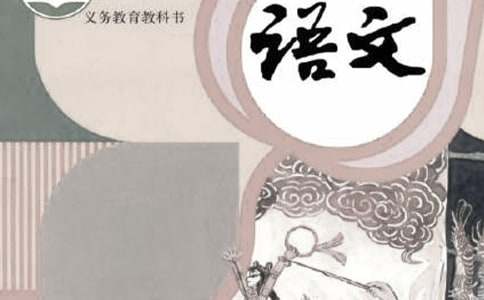英语文化阅读:the only surviving calligraphy
"They are as important in Chinese literary history as Shakespeare is to people in Britain," says historian Yuan Haiwang, author of This Is China: The First 5,000 Years.

"I remember when my son was only a baby held in my arms, I began to teach him some of the poems, like every other parent does, even though of course he couldn't remember all of them. But that's what the Chinese do."
As a Chinese person living in America, far from home, Yuan particularly likes one poem by Li Bai, about the moon:
Moonlight in front of my bed
I took it for frost on the ground
I lift my head, gaze at the mountain moon
Lower it, and think of home.
"The moon in China has a special meaning. And when it's full, that represents the fullness and reunification of the family," says Yuan. "So that poem struck the deep core of my heart whenever I miss my family."
The moon also symbolises poetry and dreams, so it's fitting that it plays a role in Li Bai's death - the story is that he drowned in a river when he tried to embrace the moon's reflection.
"He was drunk, presumably," says translator Burton Watson. "He was drunk a good deal of the time."
Portraits of Li Bai often show him in a long white gown, raising his wine glass to the moon.
Drunkenness didn't have negative connotations for an 8th Century poet - it was the route to divine inspiration. Li Bai and Du Fu were both heavy drinkers, even though in other ways their lives were very different.
Li Bai was a huge celebrity, showered with honours because of his genius. Du Fu, on the other hand, aspired to a career as a civil servant, but he failed the exam and was too prickly to network his way into a good post.
Then came a rebellion led by a general, An Lushan, and eight years of civil war. Du Fu fled the Tang capital, Xian, only to be captured and then to wander as a refugee and exile until the rebel general was assassinated by his own son, and everyone could go home.
After this, he finally wangled a government post… but not for long, as Burton Watson explains.
"He got an official position but he immediately did something to annoy the emperor or spoke out too openly on social problems, again and again writing poems that were critical of the regime. And he was shunted aside from his official position."
As Du Fu put it in one of his poems:
Perverse by nature, I'm addicted to fine lines
If my words don't startle people, I won't give up till I die
In his later years, Du Fu was so poor that one of his children died of starvation.
He also wrote a famous poem about a gale that blew the thatched roof off his cottage, over the river and into the tree-tops, allowing rain to fall on his children in their beds. Du Fu writes that he could not sleep, and fell to pondering life's injustices.
Then, towards the end of the poem, he has a vision:
If I could get a mansion with a thousand, ten thousand rooms,
A great shelter for all the world's scholars, together in joy,
Solid as a mountain, the elements could not move it.
Oh! If I could see this house before me,
I'd happily freeze to death in my broken hut!
"We constantly talk about that verse," says Xun Zhou, a historian at Hong Kong University, who grew up in the part of south-west China where Du Fu lived at this stage of his life.
In fact, she and other Chinese people do not just talk about it, they produce ironic take-offs, mocking the corruption of officialdom.
"So they turn the verse - 'Suddenly, I saw a great mansion appeared in front of me - and my father would have five rooms in that mansion.'"
The point of the joke is that officials look after themselves - and their families - very well.
I asked some of the people relaxing one warm evening on the shore of a Beijing lake for their views on poetry.
When I asked whether they had any favourite contemporary poets, they could not really think of any. As one of them put it, people do not have much time for poetry nowadays.
But most could still remember the Li Bai and Du Fu they had learned in childhood - and were determined their own children should have a grasp of these classics of Chinese literature.
【(公众号:英语学习)】
本文为原创文章,版权归作者所有,未经授权不得转载!
【英语文化阅读:the only surviving calligraph】相关文章:
山寨文化的兴起英语双语阅读06-23
英语励志文章:《You Have Only One Life》06-10
关于文化的雅思阅读英语词汇08-07
看世界各地的茶文化英语阅读06-16
茶文化阅读06-20
only的经典广告语06-23
2018广东高考英语文化型阅读理解08-30
英语六级阅读试题:文化风俗10-03